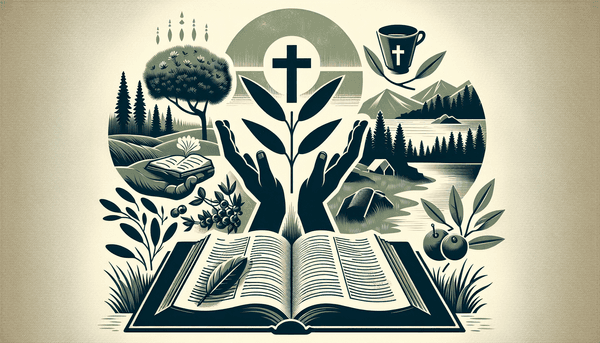The Universal Need for Forgiveness
In the Christian faith, the universality of sin is an accepted truth, as stated in Romans 3:23, 'for all have sinned and fall short of the glory of God.' Yet, it is through God's grace and mercy that forgiveness is extended to all who seek it with a repentant heart. Forgiveness in the Bible is not a reward for the deserving but a divine gift available to the undeserving. Ephesians 4:32 reminds us to 'be kind and compassionate to one another, forgiving each other, just as in Christ God forgave you.' This act of forgiving is a cornerstone of spiritual life, allowing us to mirror God's love and grace. The transformative power of forgiveness is vividly portrayed in the story of Zacchaeus (Luke 19:1-10), where a man known for his greed and deception is redeemed through his encounter with Jesus, leading to a life dedicated to restitution and generosity.
The Role of Music in Worship
The Psalms stand as a testament to the biblical foundation for music in worship, often described as the hymnbook of the Bible. Believers are encouraged to engage with music that uplifts the soul and reflects the values of love, joy, and peace, as echoed in the fruits of the Spirit (Galatians 5:22-23). In Colossians 3:16, we are urged to 'let the message of Christ dwell among you richly as you teach and admonish one another with all wisdom through psalms, hymns, and songs from the Spirit, singing to God with gratitude in your hearts.' The music we choose to listen to and use in worship can profoundly impact our hearts and minds, shaping our understanding of and relationship with the divine.
The Power of Faith
Jesus spoke of faith as small as a mustard seed having the power to move mountains (Matthew 17:20). This metaphorical expression underscores the extraordinary potential of even the smallest measure of genuine faith. The story of the woman with the issue of bleeding (Luke 8:43-48) demonstrates that faith, coupled with action, can lead to miraculous healing and restoration. Faith is an active, living force that calls us to step out with courage, trusting in God's steadfastness and compassion. 'Now faith is confidence in what we hope for and assurance about what we do not see,' Hebrews 11:1 tells us, inviting us to embrace the unseen with confidence and hope.
Conclusion
The biblical journey through forgiveness, worship, and the pursuit of wisdom is an invitation to deepen our relationship with God. From the story of Zacchaeus to the Psalms of David, and the teachings of Jesus, we find that these elements are not just ancient texts, but living words that continue to resonate with us. They call us to a life of transformation, a path marked by repentance, joyous worship, the quest for truth, and a faith that endures. It is in these principles that we find the strength to navigate life's challenges, with the assurance that God's grace is sufficient for us in every season.
FAQ
Q: What does Matthew 10:26 mean?
A: Matthew 10:26, 'So do not be afraid of them, for there is nothing concealed that will not be disclosed, or hidden that will not be made known,' encourages believers to trust in God's plan and justice, affirming that truth will ultimately prevail over secrecy and fear.
Q: What is the story of Zacchaeus in the Gospel of Luke?
A: In the Gospel of Luke, Zacchaeus was a wealthy tax collector who obtained money through unethical means. Desiring to see Jesus, he climbed a sycamore tree due to his short stature. When Jesus arrived, he called Zacchaeus down and announced that He would stay at his house, leading to Zacchaeus's repentance and restitution (Luke 19:5).
Q: What does 'Knock and the door shall be opened' mean?
A: This phrase encourages individuals to take initiative in seeking God, promising that those who earnestly seek will find and those who ask will receive, as stated in Matthew 7:7-8.
Q: Can you give me a prayer to say before sleep?
A: A simple nighttime prayer could be, 'Lord, as I lay down to sleep, I entrust myself into your care. Thank you for your love and protection. Grant me peace and restful sleep, and renew my strength for the day to come. Amen.'






